“The last 20 months have not witnessed any significant changes in the national economy. Contrary to expectations, we have so far been subjected to a steady deterioration in the general standard of living; and intolerable suffering by ordinary Nigerians have risen higher, scarcity of commodities has increased…. Unemployment has stretched to critical dimensions.”
The above quote was an excerpt from the inaugural broadcast as military president of then Major General Ibrahim Babangida, justifying the August 27, 1985 coup that ousted his then friend and comrade-in-arms, Major General Muhammadu Buhari. Over the years, Buhari had disputed the real reason for his overthrow, attributing it to his investigation and indictment of some top military officers involved in import licence fraud. Whoever was the purveyor of truth between Buhari and Babangida is not the subject of this article. For the purpose of this piece, what is important was Babangida’s analysis of the person of Buhari, and the administration he ran for 20 months. I will lift some excerpts from Babangida’s scorecard of Buhari’s first coming some 32 years ago and place these within the context of today’s realities, starting from the opening quote above.
By a stroke of interesting coincidence, it’s been 20 months since Buhari was sworn in as president, after leading a coalition of opposition politicians in the All Progressives Congress (APC) to defeat the then ruling People’s Democratic Party (PDP) candidate, President Goodluck Jonathan. At the inception of the Buhari administration, expectations were indeed really high just as there were celebrations when Buhari sacked the Shehu Shagari administration on December 31, 1983. Twenty months on, however, have there been any significant changes in the national economy? Of course, but for the worse! The unemployment situation is more than critical; companies that have not closed down are finding it difficult to pay salaries, as most states and local governments. The deterioration in the standard of living of the people is horrendous – inflation is close to 20%, power outages have never been this intolerable, workers have difficulty paying their house rents, millions are living in hunger and deprivation. With the unendurable exchange rate regime, it would be little surprise if Nigerians were soon forced to deal with scarcity of commodities, or queue for essential ones, as happened during Buhari’s first coming in 1984.
“Regrettably, it turned out that Major General Muhammadu Buhari was too rigid and uncompromising in his attitudes to issues of national significance. Efforts to make him understand that a diverse polity like Nigeria required recognition and appreciation of differences in both cultural and individual perceptions only served to aggravate these attitudes.”
Advertisement
Despite the 30-year gap, Buhari in his second coming appeared to have planted his governance principles on the template of his first. If those principles failed the nation woefully in 1984, they are even far less likely to work in today’s much-changed world. The economy has gone down south not so much because of the oil price crash long predicted since the last quarter of 2014, important though that was, but more crucially because of the Buhari administration’s monetary and fiscal policy choices. And when those choices failed to bring desired results, the administration kept charging in one direction like a blind bull, ignoring the suggestions of well-meaning individuals and regarding every criticism as enemy action. Indeed, in its management of the economy, the administration has been an insufferable bully focused on driving on a one-dimensional track, believing it has answers to all the problems (even as the situation worsens) while dismissing suggestions from Nigerians who know better. The administration’s unbearable arrogance is also reflected in other areas outside of the economy.
It is there in the insularity in appointments, and glaring imbalances therein that do not reflect the nation’s ethnic and religious diversities, and violate all constitutional safeguards. It is there in the seeming soft handling of the rampaging Fulani herdsmen compared to the tough stance against the Niger Delta militants and IPBO campaigners. It is there in the pervasive perception that the anti-graft battle has been no more than a persecution of the leaders of the PDP. It is also there in the strong-arm tactics the DSS has resorted to in making arrests of a political nature as against the polite invitation, which democratic norms demand, and which the security agency has mastered since the nation’s return to civil rule. For every complaint and criticism, the administration has dug in its teeth into the very wrong it was accused of perpetrating.
“While the government recognizes the bitterness created by the irresponsible excesses of the politicians, we consider it unfortunate that methods of such nature as to cause more bitterness were applied to deal with past misdeeds. We must never allow ourselves to lose our sense of natural justice. …. The guilty should be punished only as a lesson for the future.”
Advertisement
As it was in the second republic when the politicians behaved mostly irresponsibly, so it has been since the return to the present civil democratic rule in May 1999. The rascally mismanagement of public funds under Jonathan was particularly disturbing. The Buhari administration has in the last 20 months, however, devoted a disproportionate amount of energy pursuing vengeance rather than justice, natural or legal. Just as in his first coming when some deposed state governors were convicted and jailed for 100 years, and those the military tribunals had no evidence to convict were detained sine die under Decree 2, Buhari in his second coming has fallen back on a similar template, hounding his opponents, and getting his pound of flesh for past wrongs, in the guise of anti-graft war. The only politicians with corruption allegations against them have been those in the former ruling PDP.
The observance of due process, in bringing those allegedly corrupt politicians to justice, has more often than not been in the breach. The government has for instance ignored repeated court orders to release, on bail, former NSA Sambo Dasuki. Shiite leader Ibrahim El-Zakzaki has been detained for months despite a high court order for his release. Some PDP politicians released on bail were rearrested and slammed with some other charges. Yet there have been no attempts to investigate corruption allegations against politicians in the ruling APC. And SGF Babachir Lawal, indicted by the Senate for fraudulent contract awards, was dismissively cleared of any wrongdoing. The administration’s blind pursuit of justice, no vengeance, its uneven-handedness, its cavalier disregard for judicial process, and its manifest persecution of political opponents have deepened, rather than heal, the bitterness in the polity; widened, rather than mend, the nation’s fault lines.
“The Nigerian public has been made to believe that the slow pace of action of the federal government … was due to the enormity of the problems left by the last civilian administration. Although it is true a lot of problems were left behind by the last civilian government, the real reason, however, for the very slow pace of action was due to the lack of unanimity of purpose among (members of) the ruling body; subsequently the business of governance has gradually been subjected to ill-motivated power play considerations.”
The above excerpt was not from Babangida’s inaugural broadcast but from the coup speech of then Major General Joshua Dogonyaro, announcing the termination of the Buhari military regime on August 27, 1985. As in his first coming in 1984, Buhari today has been slow, very slow, in decision-making and implementation. On inauguration May 29, 2015 it took more than six months for the president to constitute his cabinet.
Advertisement
Almost two years on, envoys have not been deployed to represent the country abroad, and critical government agencies have no boards. Whenever the administration was accused of being unduly slow, Buhari was wont to put the blame on his immediate predecessor. Indeed for more than one year, Buhari’s singsong was either that the Jonathan administration, or 16 years of PDP, destroyed Nigeria. Like a broken record, Buhari and his aides repeatedly bandied Jonathan, or the PDP, as an excuse for the administration’s slow inaction or policy failure, even when around the president were erstwhile strongmen of that party. It was of course obvious that there was “the lack of unanimity of purpose” in the ruling party and that “ill-motivated power play considerations” impacted negatively on the business of governance.
Remember the politics surrounding the election of the National Assembly principal officers and how the presidency and APC became upset with the emergence of Bukola Saraki as Senate president and Yakubu Dogara as House speaker. Remember how Saraki’s arraignment for false declaration of assets at the Code of Conduct Tribunal was believed to be the fallout of his election as senate president in spite of the party’s support for another candidate. Remember how senators made an unseemly spectacle of themselves by following Saraki to the courtroom and abandoning their parliamentary duties in the process.
Remember the different political underhand tactics to minimize the reach and influence of APC leader Bola Tinubu and cut him down to size. There were at different times “ill-motivated power play considerations” involving presidency officials and party executives against the senate leadership, presidency officials and party executives against Tinubu, the senate leadership against Tinubu, some governors and ministers against Tinubu, and some ministers against some other ministers.
“… the initial objectives and programmes of action, which were meant to have been implemented since the ascension to power of the Buhari administration, have been betrayed and discarded.”
Advertisement
Place the above concluding excerpts, also from Dogonyaro’s coup speech, against the implementation, or lack of it, of APC’s campaign promises. Azuka Onwuka, writing in Punch, adumbrated the party’s unimplemented presidential campaign promises thus: entrenchment of true federalism with a national conference to restructure Nigeria along the lines of devolution of power, fiscal federalism, state police, etc.; exchange rate parity between naira and dollar; scrapping of the Office of First Lady; reduction in the presidential fleet from over 10 aircraft to one; drastic reduction in presidential foreign trips; and fighting corruption without fear or favour, among others. A few of these promises have been implemented without being implemented, and others discarded.
On the strength of his performance in office in the last 20 months, there is no question that Buhari is very weak on the economy, and does not have the capacity to fix Nigeria. His failure is our collective failure to critically evaluate the abilities of candidates for elective offices based on their background, achievements, knowledge, and emotional intelligence. We all, politicians and electorate alike, were blinded by the failings of the Jonathan administration to have accepted just anybody to occupy that office.
Advertisement
That was the only reason why a Buhari could have been elected president, despite his provincialism; his failure to broaden his social and political network; his refusal, since he was sacked as military leader, to acquire fresh knowledge and develop himself intellectually; and his politics of intolerance and exclusion for the 12-year period he contested and failed to win the presidential election. To what may end up our eternal regret, we allowed the APC to con us with an old tasteless wine in new bottle as Buhari, dressed in borrowed robes of ‘Change’, rode to power on the train of party promises he neither believed in, nor had any intention of implementing. “History repeats itself”, wrote Karl Mark in an essay originally published in a German monthly magazine Die Revolution (1852), “the first time as tragedy, the second as farce.”
This article first appeared in THISDAY
Advertisement
4 comments

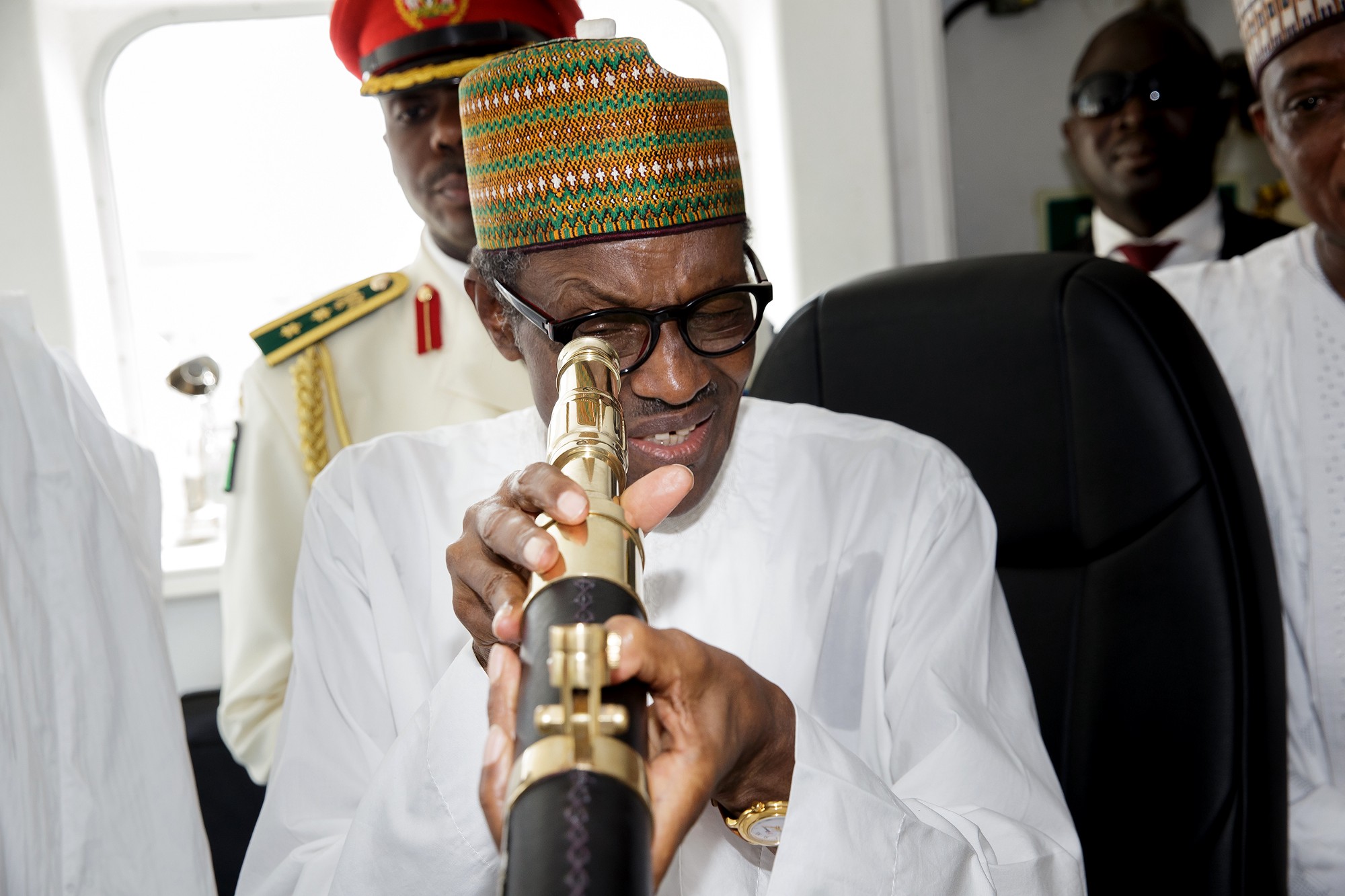
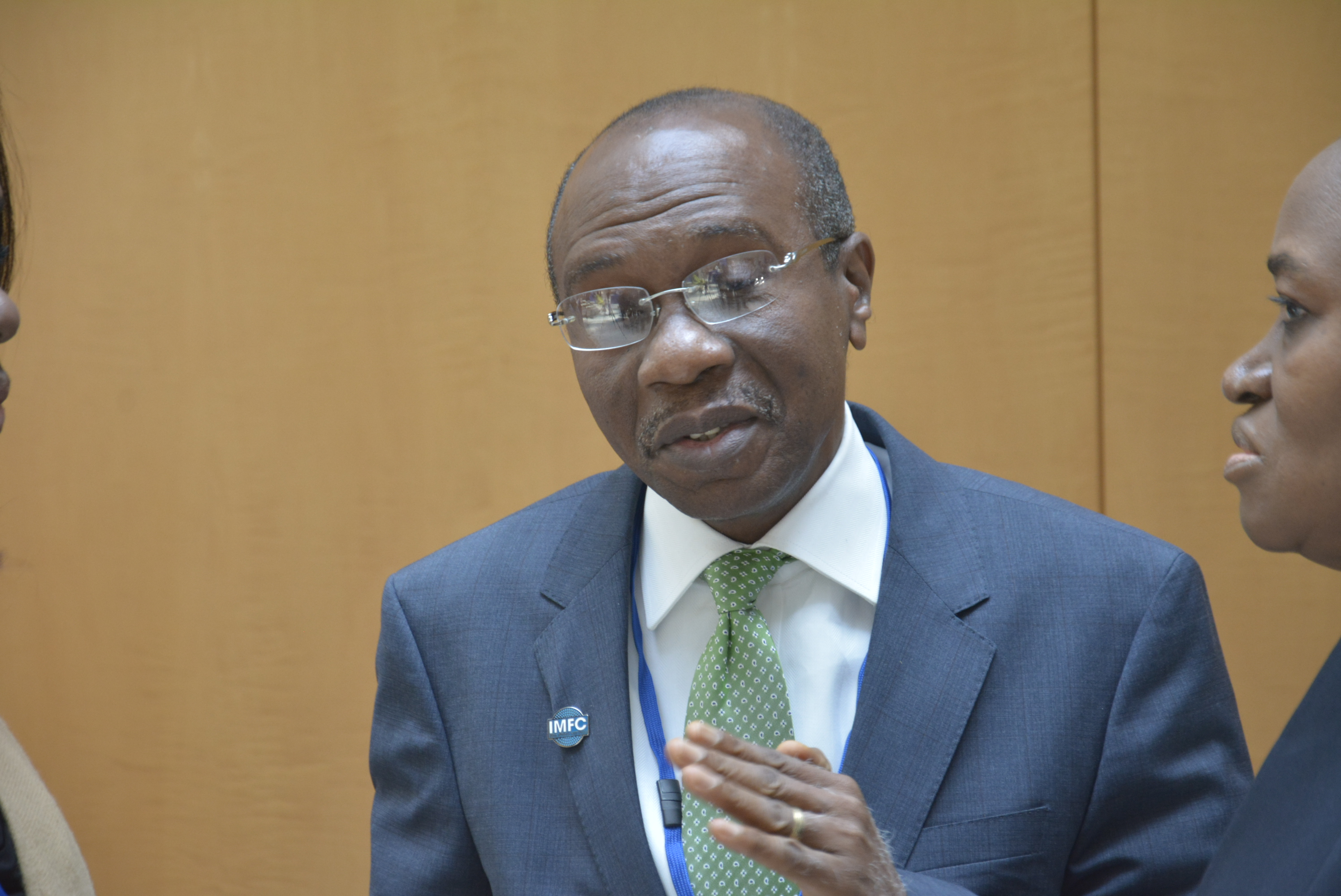
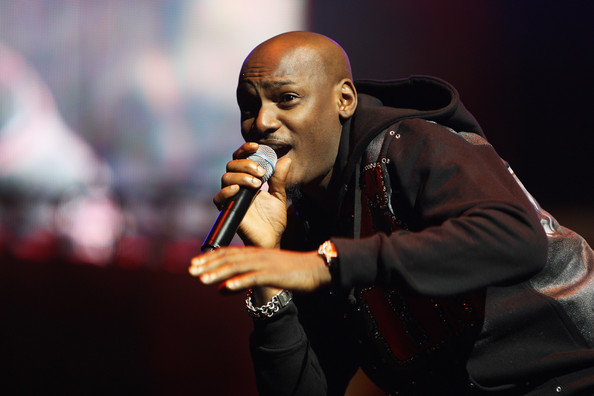
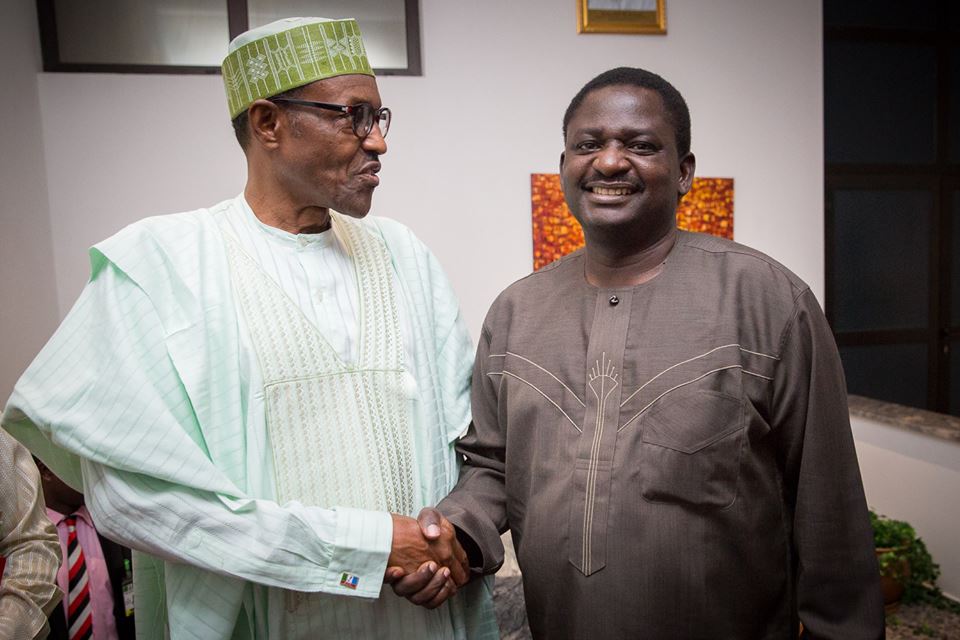
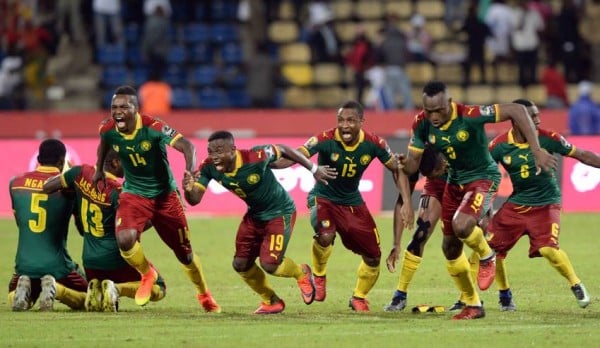

At last, the VERDICT is out. Eniola Bello thank you!!!
NIGERIA IS IN A TRULY SORRY STATE! WE SHOULD PRAY FOR THIS COUNTRY WITH ALL SERIOUSNESS. SOME PEOPLE ESPECIALLY THE NORTHERNERS ALWAYS WANT POWER, BUT SIMPLY LACK THE INTELLECTUAL AND CRITICAL MINDEDNESS TO USE IT FOR THE COLLECTIVE GOOD OF OUR PEOPLE. SAD!
The Nigerian press vacillates between 2 extremes; 1st they lend themselves as liars for hire, or 2nd;they present a rehash of sentiments, anecdotes and conjecture as news. This is why since the Obasanjo days I have written off the Nigerian press. Full disclosure; I AM A BUHARI SUPPORTER. Nonetheless, I am discerning enough to criticise his government in a dispassionate way. Which is why I have no respect for the press, a press that is thoroughly lazy and historically unprofessional. Those of us who supported President and still do, know that the man was NEVER an economic genius, he himself has never pretended to be one. Truth to tell no President anywhere in the world runs an economy. I supported Buhari because I expected him to configure an atmosphere in which Nigeria’s best and brightest; The Osinbajos, Fasholas, and Adeosuns of this world will serve Nigeria. Despite some teething problems I still believe they are on track. So when persons like this writer, rise up and regurgitate anecdotes and half truths, the type put out by Politicians who are hell bent on changing the narrative regarding the nation’s socio-economic problems, I am aghast by their sophism. Mr.Bello when you read this piece of yours in 2 years time; answer the following questions; did I thoroughly investigate the allegations of partisanship in the fight against corruption? Is this really true;
Remember the different political underhand tactics to minimize the reach and influence of APC leader Bola Tinubu and cut him down to size. There were at different times “ill-motivated power play considerations” involving presidency officials and party executives against the senate leadership, presidency officials and party executives against Tinubu, the senate leadership against Tinubu, some governors and ministers against Tinubu, and some ministers against some other ministers.
Or This:
The government has for instance ignored repeated court orders to release, on bail, former NSA Sambo Dasuki. Shiite leader Ibrahim El-Zakzaki has been detained for months despite a high court order for his release. Some PDP politicians released on bail were rearrested and slammed with some other charges. Yet there have been no attempts to investigate corruption allegations against politicians in the ruling APC. And SGF Babachir Lawal, indicted by the Senate for fraudulent contract awards, was dismissively cleared of any wrongdoing. The administration’s blind pursuit of justice, no vengeance, its uneven-handedness, its cavalier disregard for judicial process, and its manifest persecution of political opponents have deepened, rather than heal, the bitterness in the polity; widened, rather than mend, the nation’s fault lines.
If you were really professional, you wouldn’t simply rehash the narratives of politicians and the frenzied mood of a jaded population. You would seek to elevate the platform of discussion above the lazy and mundane. You could for instance ask why the 2016 budget could not be implemented? What role did sabotage have to do with it? What dynamics do political players have to do with the mood of the country?
The Nigerian press has never learnt how to engage sitting Nigerian governments. And as such have remained largely irrelevant in defining a National agenda. At the best you are necessary irritants and at worst you are sabotage connoisseurs… It is a crying shame!
You’re a Fraud